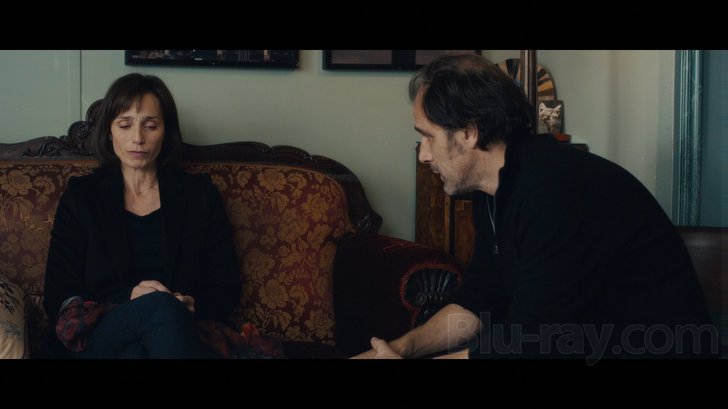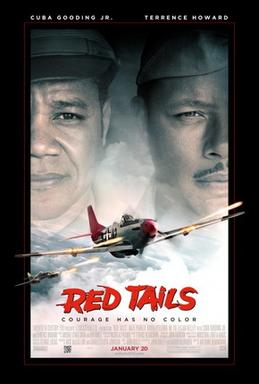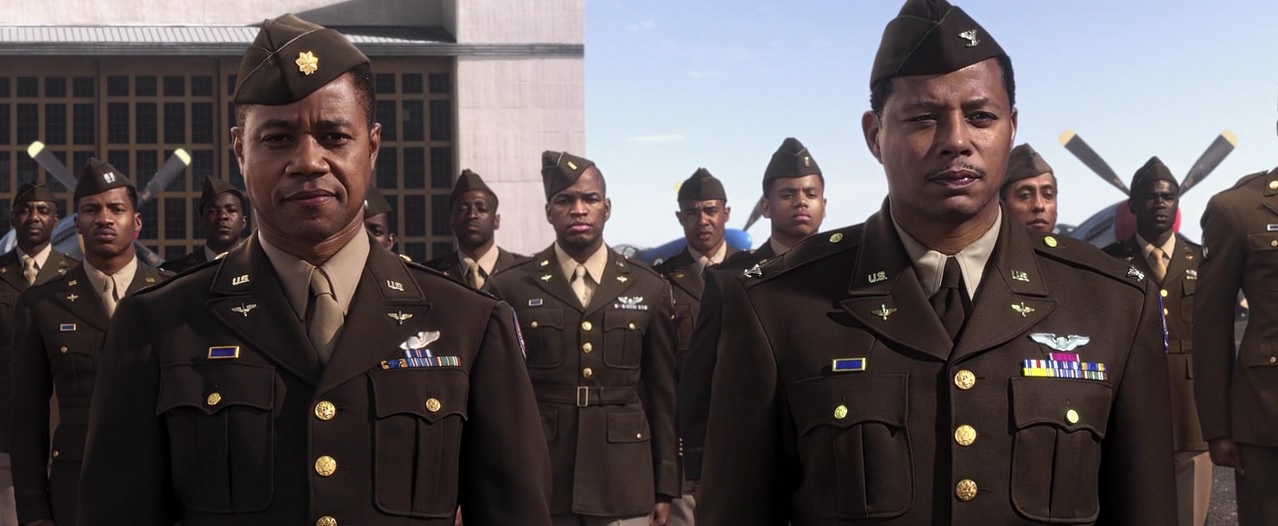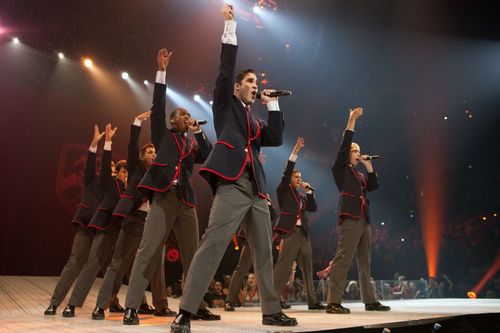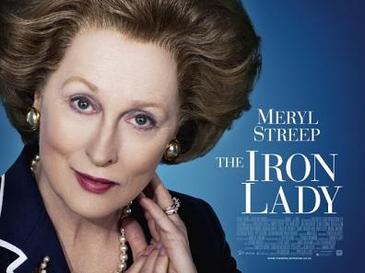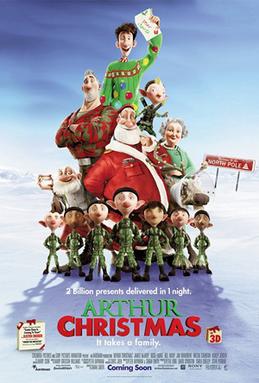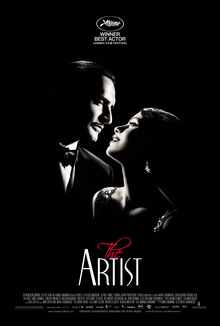Jump They Say...
I'm not going to bash Man On A Ledge. If one watches it, one will enjoy it, but there's a caveat to that. One must completely forget that there isn't much in Man On A Ledge in terms of acting or plot, everything is both remarkably predictable and far-fetched.
Nick Cassidy (Sam Worthington) nervously checks into the Roosevelt Hotel, has a meal, wipes his fingerprints off everything, and walks out on the ledge. It doesn't take long for someone to see him, and soon the police come to stop the jumper. At first, it's Detective Jack Dougherty (Ed Burns), but Nick makes an unusual request: he wants to speak to Detective Lydia Mercer (Elizabeth Banks) or he indeed will jump.
Mercer, emotionally broken from a failed rescue attempt of another jumper, is all but dragged to the Roosevelt. She isn't happy about it, and neither is Officer Marcus (Titus Welliver), the growly head of the rescue squad.
As it turns out, not happy either is Nick's former partner, Mike Ackerman (Anthony Mackie), who wonders what exactly is going on. However, one person is extremely happy about all this: gutter journalist Suzie Morales (Kyra Sedgwick).
Kyra Sedgwick as Suzie Morales. Process that for a minute.
 We quickly learn, primarily through flashbacks, that Nick is a fugitive: a former cop who was convicted of stealing the Monarch Diamond, which he was suppose to be protecting, from the owner, real estate tycoon David Englander (Ed Harris). Nick goes to prison, but makes a daring escape when he's allowed to go to his father's funeral, which forces him to beat up his own brother, Joey (Jamie Bell). Now on the lam, he's on the ledge.
We quickly learn, primarily through flashbacks, that Nick is a fugitive: a former cop who was convicted of stealing the Monarch Diamond, which he was suppose to be protecting, from the owner, real estate tycoon David Englander (Ed Harris). Nick goes to prison, but makes a daring escape when he's allowed to go to his father's funeral, which forces him to beat up his own brother, Joey (Jamie Bell). Now on the lam, he's on the ledge. As these types of films require a good twist or more to make things interesting, we get the first one rather quickly: Nick's suicidal act is really one gigantic ruse. In reality, it's all part of a master plan to prove Nick's innocence.
How, pray tell? Well, by proving the Monarch was never stolen in the first place! How is this done? By breaking into Englander's vault of course. While Nick distracts the police by being on the ledge, Joey and his girlfriend Angie (Genesis Rodriguez) will break into the building, steal the diamond, and prove Englander faked the robbery for the insurance money. As time begins to run short for the Cassidy brothers, Englander is not too worried, at first, about the goings-on.
This is because he has certain police on his payroll.
As the situation unfolds, Mercer and Doughtery finally learn who the man they know as "J. Walker" (why that name made me laugh is anyone's guess but oddly, that name is a clue), Mercer believes him, we get a few more twists in the break-in and the Monarch Diamond, and eventually the bad cops are revealed, the good ones do their jobs, the Cassidy Brothers prove what needed to be proven, and an older valet at the hotel (Bill Sadler) proves unusually helpful to the two boys.
Wonder what that was all about?
I can't help having a touch of cynicism on Man On A Ledge only because during the film, so much of Pablo F. Fenjves' screenplay was pretty obvious. When it comes to Nick's "daring" escape, I almost immediately saw through it. The same goes for the most helpful valet.
And here is where I fault Man On A Ledge: everything in it is so amazingly predictable that the attempts to have these "shocking twists" don't pan out because they aren't shocking at all. They're not exactly predictable in that one waits for them, but they aren't surprising. If I was able to figure them out really quickly, then anyone should.
Moreover, Man On A Ledge does what a lot of disposable action/thrillers do: they depend on a great many moments of fortuitous coincidences to occur. We depend on everything in the plan going off without a hitch and which appears even harder given how almost inept Angie and Joey are at the actual break-in.
I figure to pull of this elaborate heist, there would have to have been rehearsals and a casing of the joint. How Joey or Angie could get at the complications of breaking into the vault where apparently no one ever goes ,not even a guard on the floor where said vault is or even anyone on that floor from the looks of it, we know not.
Why Englander would keep this very valuable there rather than say at his mansion, or say in a Swiss vault, or how the Cassidys knew he kept it there, we know not.
In one crucial moment, in order to cover up the explosion of breaking in, Nick is literally inches from falling over, but pulls back in the nick of time. Why or how not one of them considered that maybe, just maybe, he actually could go over, again, we know not.
 Man On A Ledge also requires something else: a certain degree of stupidity to make it work. Internal Affairs may be investigating and suspect certain rogue cops to be in cahoots with Englander, so of course they're going to let the same cops take charge of the situation of someone who at one point was working for them.
Man On A Ledge also requires something else: a certain degree of stupidity to make it work. Internal Affairs may be investigating and suspect certain rogue cops to be in cahoots with Englander, so of course they're going to let the same cops take charge of the situation of someone who at one point was working for them. Even though Nick Cassidy is a cop-turned-criminal, amazingly no one (Doughterty, Mercer, or Marcus) ever recognizes his face until the DNA proof comes in via a cigarette.
I think it's the far-fetched nature of Man On A Ledge more than anything else that pushes the film down. Granted, I know the movie isn't going for much other than entertainment in its hour and forty-odd minute running time, and if I forget that I'm not suppose to think I can clearly enjoy it. However, I can't get those little things like plot or acting out of my measuring system: not if I figure things out well in advance, and not if I can't believe some of the performances.
Asger Leth certainly didn't take much care in how he directed his actors. You can see this with people such as Ed Burns, a man who has built his entire acting career on being the quintessential sarcastic New Yorker. I figure we aren't suppose to care much about Doughtery's life outside the job, but here, I could almost sense Burns thinking, "I say these words, I get paid, I'm outta here".
Harris was just reveling in his ability to play the evil 1 Percenter (though I was surprised at how thin he was) and since we really don't need to go into his background the less we see this an an epic confrontation between the 'good cop framed' and the 'bad guy', the better.
I also note that during the standoff at the Roosevelt, a man who looked either homeless or who had wandered over from Occupy Wall Street was shouting something about how the rich guys weren't the ones going to jail. How this mattered to anything that was going on I know not, but it might have been a nice touch to see a group of people on the street with drums chanting "This Is What Democracy Looks Like" to Suzie Morales' camera, a moment of humor in the film. Yet I digress.
It was nice to see Bell going for a bit of humor whenever he and his girlfriend start doing witty sniping at each other during the robbery though one wonders whether, again, it made sense that they would choose this particularly tense time to do their version of a Burns & Allen routine; when he and Nick had their 'fight', I said to myself, "FAKE!".
The second worst performance was Sedgwick, who was not only grossly miscast as the Latina Suzie Morales (the audience I was with laughed several times, mostly in good nature, in Man On A Ledge, but the biggest laughter came when Sedgwick emphasized her character's last name) but while we saw she was a predatory character she was really superfluous to the story.
The worst performance was from Worthington, an actor that continues to struggle to be convincing. In all the films of his that I've seen: Avatar, the Clash of the Titans remake, Terminator: Salvation, and The Debt, Worthington isn't called on to be a person of full range. Well, maybe in The Debt he was slightly better than he has been before, but by and large Worthington just has such a hard time expressing any kind of emotion on screen (or completely losing his Australian accent).
He appears to be a cross between Taylor Lautner and Robert Pattinson: someone who is being built up to be a big action star (Lautner) but who is also a more serious actor (Pattinson). The fact that neither Lautner or Pattinson have actually done anything close to a performance doesn't bode well for them, but given that Worthington is still stumbling in his efforts to find a range doesn't bode well for him either.
Man On A Ledge isn't by any means a bad film and certainly not the worst film of 2012. It's dumb but in a slightly entertaining way. That is, if you're willing to forget that people aren't bringing their A-Game to the film and the story itself is highly contrived, ridiculous, far-fetched, and built on far too many happy turns of fortune to be believed.
I figure Man On A Ledge knows what it is, doesn't pretend to be anything else, doesn't aspire to be anything else, and for that I don't fault it. Really, if it weren't for the film's predictability, I would have enjoyed it more. Did I enjoy Man On A Ledge? Slightly, but not enough for me to take a dive for it.
DECISION: C-




